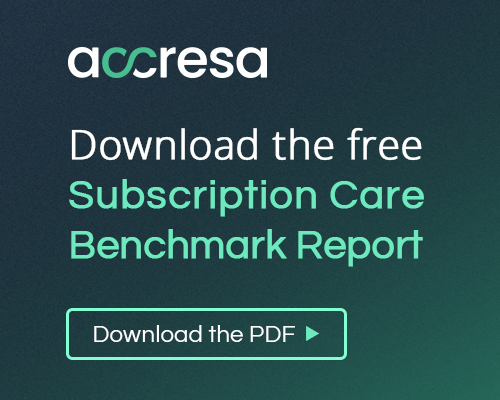Employee health benefits are a cornerstone of great company culture, essential for attracting and retaining top talent and maintaining a productive workplace. In today’s intensely competitive market, employee health benefits are nothing short of a strategic imperative. But it comes at a price, literally. In 2024, the projected cost of healthcare for employees will soar to over $15,000 per employee, underscoring the financial burden placed on companies.
Despite their substantial investments, employees often encounter significant difficulties accessing quality healthcare. When they receive care, employees face daunting out-of-pocket costs. Employers, who typically subsidize around 80 percent of health plan costs, must find it inconceivable that their workforce cannot access the healthcare services they pay so much for. Based on history, we can expect that employee health experience will continue to deteriorate while costs increase.
Subscription Care is a transformative solution that redefines how healthcare is accessed, funded, and experienced by eliminating intermediaries in the healthcare payment equation and streamlining access to physician networks. Subscription Care offers an efficient, affordable, patient-centered approach by facilitating direct contracts with independent healthcare teams. Rather than paying for each medical visit, in this model, employers pay a fixed fee to grant their employees access to high-quality care.
For healthcare proponents who have long advocated for changes in healthcare contracting and payments, new government regulations that accelerate the shift toward direct contracting are a welcome development. The direct contracting model has the potential to streamline processes, reduce administrative burdens, and provide significant value to providers, employers, and patients in several ways.
Learn how to incorporate Subscription Care in your health benefit plan
Now, let’s look at the specific challenges employers can overcome with Subscription Care.
The Limitations of Traditional Employee Health Benefits
The traditional model of employee health benefits has long been the cornerstone of many organizations’ efforts to provide health and wellness benefits to their staff. Typically, this model involves employees receiving heavily subsidized insurance coverage, which extends to primary care physicians, specialists, hospitals, and other healthcare services. While this system has offered significant advantages, it’s not without its limitations, which have become increasingly apparent over time.
Lack of Transparency
One of the primary limitations lies in the lack of transparency. Traditional health insurance models often obscure the actual costs of healthcare services, leaving employees unsure about how much they pay and what their health benefits cover. This lack of clarity can lead to unexpected out-of-pocket expenses, hindering effective healthcare cost management. It is well known that patients often skip needed medical appointments due to financial uncertainty.
Subscription Care places consumers in the driver’s seat, offering accessibility and transparency, while empowering employees to make informed healthcare decisions without financial surprises. Employers who provide Subscription Care programs can expect fewer sick days, increased employee productivity, and greater satisfaction with the quality of care.
Complex Processes
Traditional health plans can be complex to manage, leading to administrative inefficiencies that affect insurance companies, health providers, employers, and employees. On the population level, these complexities result in higher healthcare costs, impacting premiums, deductibles, and co-pays.
Additionally, new legislative requirements make it more difficult for employers to fund a traditional health plan. Employers, in search of innovative ways to prevent the shifting of health plan costs to employees, are increasingly exploring Subscription Care as a component of their health plan strategy.
Subscription Care’s straightforward approach simplifies the employee experience by providing a direct relationship between employees and healthcare providers. Research has shown that a higher ratio of primary care providers leads to better health outcomes. In our recent survey, 81% of individuals highly value strong relationships with their primary care physicians.
Employers can combine traditional health plan sponsorship with Subscription Care, enabling their employees to access primary care and other essential services without contending with the intricacies of insurance claims, co-pays, or deductibles.
Employers who adopt Subscription Care programs empower their employees to address health issues before they worsen. According to a Milliman study, employers can achieve significant savings of 20% through Subscription Care plans compared to not having one in place.
To delve deeper into the transformative impact of Subscription Care, we invite you to explore the 2023 Subscription Care Benchmark Report.
In the following sections, we will explore consumer expectations for Subscription Care and what employers anticipate when implementing this innovative healthcare model.
How Subscription Care Addresses Consumer Expectations
Consumer expectations play a pivotal role in driving change and innovation in healthcare. As championed by the triple aim, consumers expect access to high-quality care experiences at affordable prices. In response to these expectations, Subscription Care excels by:
Improving Timely Access to Care: Traditional insurance-based health plans are often characterized by substantial wait times for doctor’s appointments. Fee-for-service models indirectly motivate providers to maximize patient visits, contributing to unnecessary appointments and increased operational costs.
Subscription Care, however, streamlines administrative processes and eliminates the need for redundant visits that clog up medical practice calendars. Additionally, the integration of virtual care allows more efficient use of resources, enabling doctors to allocate more face time to each patient, a crucial factor for optimal patient satisfaction.
Many medical practices are open to a hybrid approach combining traditional fee-for-service models with Subscription Care options. Ultimately, this practice encourages a reasonable monthly fee and makes Subscription Care an economically viable choice for employers seeking this innovative healthcare option.
Improving Health Outcomes: We know preventive health with early intervention significantly impacts health outcomes and financial well-being. Proactive healthcare with mental health and wellness benefit options can positively impact employee productivity.
Subscription Care complements traditional health plans, offering a comprehensive range of services to address broader employee health needs. The additional support layer prioritizes preventive health and empowers employees to seek care promptly, leading to better health outcomes, higher productivity, and a more positive work environment.
Making Primary Care Affordable: Regular primary care appointments are essential for maintaining good health. Due to lengthy wait times and coincidental out-of-pocket expenses, traditional healthcare payment models often discourage individuals from scheduling regular primary care visits. In contrast, Subscription Care offers a transparent, cost-effective, and accessible solution, encouraging individuals to interact with their primary care doctors as needed.
47% of employees would go to the doctor two to four times a year if they had a monthly membership that included unlimited office visits and no co-pay. Reducing emergency room visits and other high-cost interventions overcomes any initial cost of implementing Subscription Care.
Learn more in our 2023 Subscription Care Benchmark Report >
Subscription Care directly addresses consumer expectations and bridges the gap between patients and affordable, high-quality care. The benefits are compelling, so what prevents employers from embracing this model?
How Subscription Care Addresses Employer Expectations
Subscription Care is an innovative solution that aligns with employers’ evolving needs and obligations. The Consolidated Appropriations Act of 2021 (CAA) has significantly amplified employers’ fiduciary duties, demanding oversight on the quality and cost-effectiveness of healthcare services provided to their employees. Employers will face higher health plan costs in light of this legislative shift.
Employers who absorb the higher costs expect more health management options, a broader provider network, and superior customer service for their employees. Subscription Care is poised to assist employers in striking the balance between cost, employee satisfaction, and optionality, enabling them to remain competitive in attracting and retaining top talent. Subscription Care delivers value to employers through:
Customization and Personalization Options: One of the defining features of Subscription Care is its unparalleled degree of personalization. Employers have embraced this flexibility, appreciating the ability to fine-tune care plans down to the level of individual providers. This level of customization empowers employees to choose healthcare options that match their unique needs and preferences. Subscription Care platforms like Accresa facilitate efficient payment processes, simplify financial transactions, and reduce the complexities of billing and collections.
By integrating traditional health benefits with Subscription Care, employers can offer employees a health benefits solution that is broad, customizable, and accessible, ensuring the well-being of their workforce.
Support for Vision, Dental, and Wellness Benefits: In pursuit of more comprehensive and competitive health benefit plans, employers are exploring offerings beyond traditional healthcare. Many have inquired about extending Subscription Care benefits to encompass vision and dental services, providing employees with holistic care options that cater to their diverse health needs.
Moreover, numerous employers are delving into wellness benefits, such as gym memberships and lifestyle stipends for wellness programs, as an integral part of their Subscription Care packages. These holistic offerings underscore employers’ commitment to the well-being of their workforce and demonstrate the forward-looking nature of Subscription Care.
Read more on Subscription Care for Dental and Vision from our 2023 Subscription Care Benchmark Report
Simplified Payments for Employers: The complexity of healthcare payments is a constant source of frustration for employers and their health plan partners. The subscription care model mitigates this concern, bypassing insurance for lower costs and better outcomes. Subscription Care, powered by Accresa, streamlines payment processes, ensuring providers receive consolidated monthly payments from a single source.
Accresa’s automated capabilities cover marketing, enrollment, eligibility, financial, and network management of Subscription Care programs to connect networks of providers to large patient populations effortlessly. This streamlined approach reduces administrative burdens and enhances efficiency, making Subscription Care an appealing and practical choice for employers.
Subscription Care presents a promising solution that aligns with employers’ evolving needs and obligations, providing a balanced, personalized, and efficient healthcare approach that resonates with employers and employees alike.
Contact us today to explore how to incorporate Subscription Care into your employee health benefits package.


